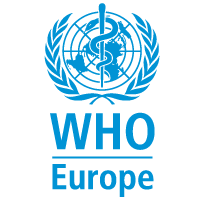
Ireland is implementing progressive health and social care service reforms for people with disabilities. Named ‘Transforming Lives’, the reforms ensure access to quality, personalized care aligned to Ireland’s health transformation policy framework, Sláintecare. This is a key government commitment to achieving a universal single-tier health and social care system that provides all of its citizens with the right care in the right place and at the right time.
‘Transforming Lives’ and the wider health system reforms were at the heart of a recent visit by a delegation from the Irish Ministry of Health to WHO/Europe in Copenhagen.
“Disability is a global public health and human rights issue; one that requires collaboration with and inputs from all stakeholders – including organizations representing people with disabilities,” said WHO Regional Director for Europe, Dr Hans Henri P. Kluge, during the visit. “WHO/Europe welcomes Ireland’s leadership and commitment in this area and to the development of a pan-European resolution on attaining the highest possible standards of health care for people with disabilities.”
Ms Anne Rabbitte, Minister of State at the Department of Children, Equality, Disability, Integration and Youth and at the Department of Health, added, “Ireland is committed to delivering a world-class health and social care service for all citizens, including people with disabilities. By working in close collaboration with the WHO Regional Office for Europe and all Member States, we can support each other in overcoming the challenges of health system reform to build back better and ensure that no one is left behind in terms of access to safe, quality, and effective health and social care services.”
Disability inclusion in the European Region
In the WHO European Region alone, an estimated 135 million people live with a disability.
WHO/Europe is currently developing a European Framework for Action on the highest attainable standard of health for persons with disabilities. The Framework will be developed in close consultation with governments, representative organizations of people with disabilities, and other stakeholders throughout 2022.
The Framework will be rights-based, focusing on eliminating discrimination based on disability. It will also be people-focused, meaning that it will call for including the needs and experiences of persons with disabilities in the design, management, and delivery of health care programmes. All of this is in line with the principle of leaving no one behind, enshrined in WHO’s European Programme of Work (EPW).
‘Transforming Lives’ in Ireland
Ireland’s reform approach to disability inclusion is a national collaborative effort to build an inclusive health and social care system aligned with the United Nations Convention on the Rights of People with Disabilities (UNCRPD).
The overarching objective is to empower people with disabilities to participate to their full potential in economic and social life and to have access to a range of quality and personal support and services that enhance their quality of life and well-being.
Some of the key health and social care reforms in the programme are:
- providing interdisciplinary services for children and young people with complex disability needs, through the establishment of 91 geographically dispersed ‘Children’s Disability Network Interdisciplinary Teams’ that deliver specialist care, including access to speech and language therapy, physiotherapy, occupational therapy, psychology and mental health support and access to assistive technology products;
- a move toward community-based housing with on-site support, away from large-scale institutional settings, so that people can access mainstream health supports; and
- ‘New Directions’, a reformed approach to day services for people with disabilities that delivers the widest choice and community-based options.
During the delegation’s visit, Dr Kluge and Ms Rabbitte also discussed the role of assistive technologies, digital health, and better support for young people’s mental health.

